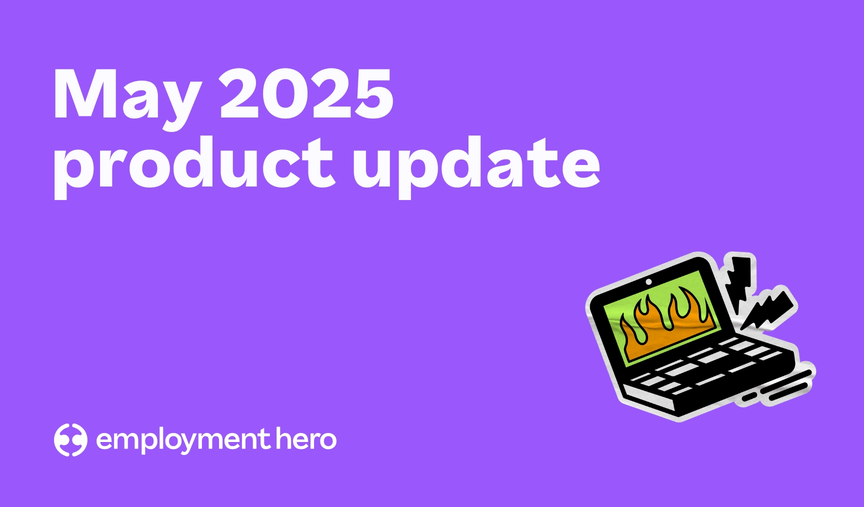Signs That You Are Suffering Burnout At Work
Burnout is a growing problem in modern workplaces. Here’s what you need to know about the condition.

Contents
We hear a lot about burnout in today’s busy workplaces, but just what does it mean to be burnt out? Stress gets a bad rap, but in some circumstances, it can be a positive force.
Studies have shown it can drive performance and improve memory and learning. But chronic stress can lead to a debilitating condition known as burnout.
“In simple terms, it’s where pressure exceeds your ability to cope,” explains Janet Hopkins, general manager at Mindful Employer.
What are the signs of burnout?
There are three broad symptoms of burnout: exhaustion (mental and/or physical), cynicism (where you feel detached from work) and inefficacy (where a crisis of confidence leads to a fall in productivity).
Signs of burnout may include fatigue, troubled sleep, shortness of temper or the inability to focus.
“I explain it as a lack of bandwidth mentally – you forget things, you’re full,” says Hopkins.
What are the causes of burnout from work?
Burnout is an increasing problem in our always-on work culture. In fact, in May 2019, the World Health Organisation classified burnout as an “occupational phenomenon” and included it in the 11th Revision of International Classification of Diseases (ICD-11).
There is a long list of possible causes of stress in modern workplaces: everything from long hours and heavy workloads to harassment and discrimination. In a world of work overload and constant notifications, it can be impossible to switch off.
Recently, we surveyed 6,000+ employees across Australia, New Zealand, the UK, Malaysia and Singapore for our 2022 Wellness at Work Report, and the results were frightening.
“56% of employees said they had been affected within the past three months.” Wellness at Work Report 2022
Who is at risk of burnout at work?
You can love your job and still suffer from burnout. In fact, it’s often high achievers who are most at risk; a five-year study published in HBR found that one in five top-performing leaders of UK businesses were affected by corporate burnout.
Another study in the US found that one in five highly engaged workers reported high levels of burnout. They were “passionate about their work” but were frustrated and stressed and contributed to a high rate of employee turnover.
Burnout has serious consequences for employees and their employers.
According to a survey conducted in 2018, 40% of 2,000 workers claimed to have considered quitting their jobs because of burnout. This has then been estimated by experts to cause a loss of $150 to $350 billion annually for businesses in the U.S.
What can you do to prevent burnout?
1. Be aware
The first step in preventing and managing burnout is awareness. We need to tune into our stress levels, says Hopkins.
It’s important to “be conscious of signs of stress in your body, some of them you’re not always aware of. Is it headaches, is it tightness in the shoulders, is it a lack of energy, is it waking up in the middle of the night?”
2. Know the signs
If you know the signs that you are under strain, you can take steps to address the causes of stress in your life – wherever they occur.
3. Self-care
Self-care is paramount to reducing stress. It’s important to allow yourself to take breaks and unwind from work. One of the most widely recommended relaxation techniques is meditation; however, Hopkins says many people tell her they struggle with the practice.
But don’t be discouraged – any activity that takes you to your “Zen place” can help you to de-stress.
“It could be taking the dog for a walk, going down to the coffee shop and reading the newspaper by yourself, having a bath, going to the football. Whatever it is for you that takes you to the Zen place and makes you feel more energised, that’s what you need to do more of when you’re starting to get burnt out,” says Hopkins.
“It’s making sure you build those things into your day.”
4. Have a positive attitude
Change the way you look at work. Try to focus on the parts of your job that you enjoy and find the value in your work.
Create a positive working environment and build healthy relationships with colleagues to relieve stress at times.
5. Exercise
Exercise has been shown to play a crucial role in coping with stress. “Try to do 30 minutes of exercise three times a week,” says Hopkins.
6. Get enough sleep
Sleep is equally important. “Make sure you get to bed at a reasonable time. Ideally, seven to eight hours of sleep is what we need.
The average in Australia is significantly less than that – a lot of us are walking around sleep-deprived.”
If you are suffering from a mental illness or you would like more information about mental health, visit the beyondblue website or call Lifeline on 13 11 14.
Related Resources
-
 Read more: Product Update: May 2025
Read more: Product Update: May 2025Product Update: May 2025
Follow our May 2025 product update as we share all of the latest and greatest features we’ve released over the…
-
 Read more: Product Update: April 2025
Read more: Product Update: April 2025Product Update: April 2025
Follow our April 2025 product update as we share all of the latest and greatest features we’ve released over the…
-
 Read more: Product Update: March 2025
Read more: Product Update: March 2025Product Update: March 2025
Follow our March 2025 product update as we share all of the latest and greatest features we’ve released over the…








